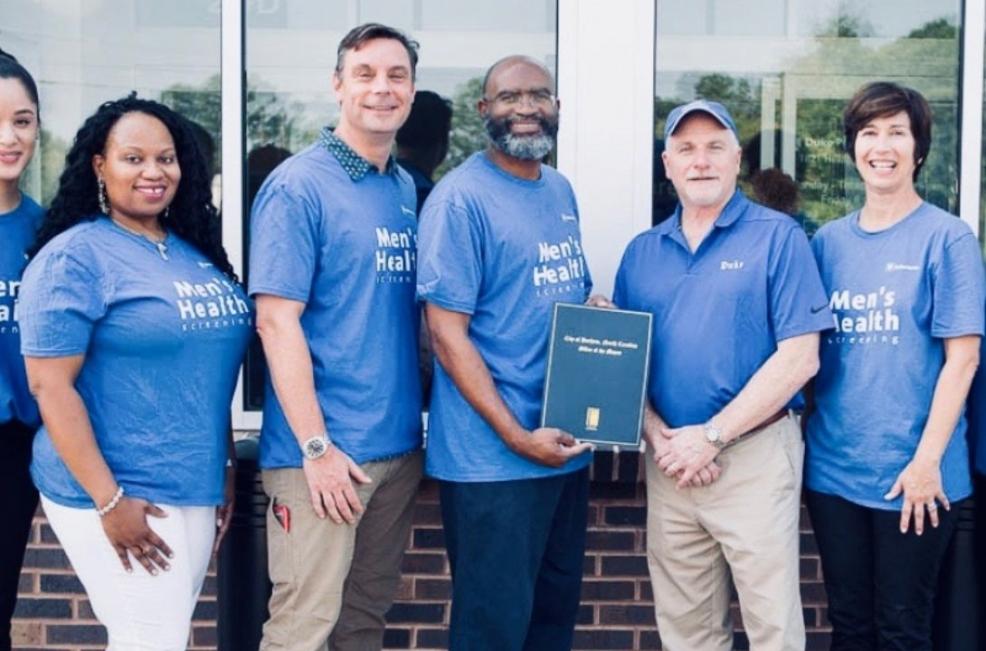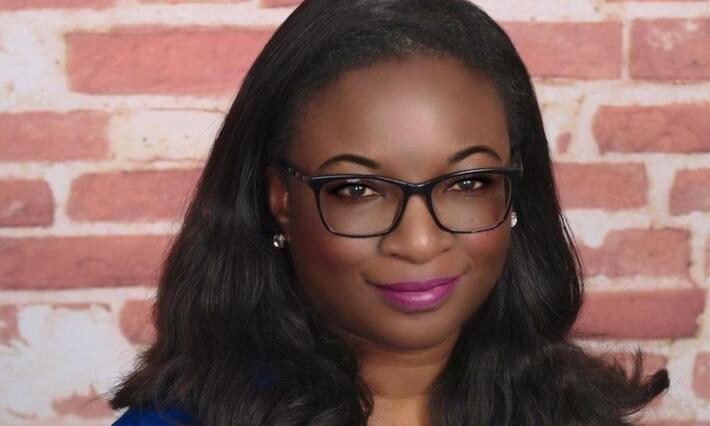As a U.S. Army Non-Commissioned Officer, Angelo Moore served during three Gulf War campaigns — Operation Desert Shield, Desert Storm and Provide Comfort. After subsequently attending, then graduating from Winston-Salem State University, he joined the U.S. Army Nurse Corps. All told, Moore would serve more than 25 years on active duty in multiple leadership roles from Germany to Hawaii — *earning several service medals, commendation medals, and service ribbons, as well as three bronze service stars, and completing a master’s degree and a doctorate degree along the way.
He retired from the Army in 2015, but Moore’s service to his countrymen continues. In civilian life, he’s chosen to focus on serving the historically underserved.
U.S. Army Lieutenant Colonel (Ret) Angelo Moore, PhD, MSN, RN, NE-BC, has led the Duke Cancer Institute Office of Health Equity (OHE) as program manager since May 2019 — overseeing, coordinating, implementing and helping design, in collaboration with his five-person team, the institute’s community impact-projects to reduce disparities in cancer outcomes for patients across North Carolina and beyond. Duke Cancer Institute leadership considers patient education, cancer prevention, and access a necessity and OHE’s work toward these ends a priority.
At DCI barely a year-and-a-half, he’s building a local and national profile in health equity. Moore was “the driving force” on a Duke and Durham team, which, in October, received a SCOPY Award from the American College of Gastroenterology (ACG) for "Best Culturally Inclusive Social Media Event” —a Facebook Live discussion in three parts and three languages on colorectal cancer prevention and screening.
The Uniformed Services University blog “Pulse” featured Moore, in February this year, in their “Black History Month Profiles: 20 Inspiring Uniformed Services University Alumni,” where both his military and civilian careers were highlighted. And he was invited to serve on the American Cancer Society’s National Navigation Round Table.
We spoke at length by phone about what drew Moore, 52, to military service, how his nursing, scientific research and leadership experience in the Army laid the groundwork for his civilian career at Duke; and how he’s continuing to help grow DCI’s programs and network of partners in service to the community, in the middle of a pandemic.





